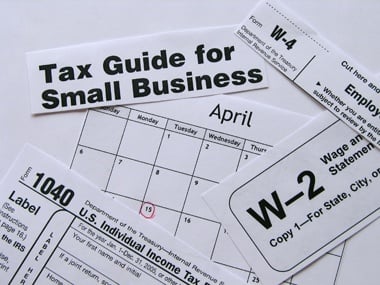Make Sure You Need to File
According to the IRS, millions of people file tax returns every year even though their incomes are below the minimum required to file. In general, that means that it’s worthwhile checking to make sure that you actually have to file — although this year is a special case. That economic stimulus check the government’s promised? You are absolutely required to file a tax return in order to get your $600. If you made less than $3,000 total in 2007, however, go ahead and skip the paperwork. In most years, however, the question of whether to file a tax return boils down to whether you either expect a refund or expect to owe the government more money. If neither of these cases apply to you, you may be able to skip the paperwork. The IRS offers a page that can help you decide based on your answers to a series of questions.
File Electronically
80 million taxpayers filed electronically last year. The IRS brags about the greater accuracy of electronic filing, the faster processing of refunds and the ability to avoid postage. But what we procrastinators really care about is the fact that we can file 24 hours a day and 7 days a week — even the night of April 14th. To file online, you’ll need the same paperwork you would to fill out your 1040 by hand:
Last year’s tax return Social Security cards for your dependents, if any W-2s from all your employers 1099s from any other income you received, as well as income receipts from real estate, royalties, trusts, Social Security and other sources of income Any receipts pertaining to your small business
If you plan to itemize your deductions, you’ll also need the paperwork to document your itemizations — claiming the standard deduction may be faster if you get down to the wire, but many taxpayers could save a lot of money by itemizing. Once you’ve gathered up the necessary paperwork, you’ll need to choose your e-file provider. To file electronically, the IRS requires taxpayers to go through authorized e-file providers: companies that are not actually affiliated with the IRS but have been authorized to file electronically through secure methods. These companies are broken down into two groups — Free File options and e-File options. Free File providers do just what the name says: they allow you to file your tax return for free. There is a catch though: you are only eligible to use Free File if your adjusted gross income for the year was under $54,000. To find your AGI, add up any income you received including wages, alimony, unemployment compensation, capital gains and anything else you can think of and subtract off your deductions using the standard deduction can make the process go faster if you aren’t sure just what deductions you are eligible for. Everyone making over $54,000 but wanting to file electronically must pick an authorized provider off of the IRS’ list. To be honest, most of these companies operate in pretty much the same way and have similar pricing. However, many do not offer state tax preparation. It’s up to you to find a provider who can also determine your state tax burden and help you file. To make matters harder, there are still a few states that do not accept electronically filed tax returns.
Request an Extension
For some of us, even filing electronically won’t get our paperwork in before April 15th. The IRS does give taxpayers the option of requesting an extension until August 15th. You have to submit Form 4868 (PDF), which is actually pretty easy to fill out: you list your name, address, Social Security number and answer four questions about the taxes you owe for the year. You can send in the form through the mail, electronically or through an authorized outside service provider. There’s only one drawback to the extension process — no matter why you might request an extension, you must pay whatever taxes you expect to owe when you submit your Form 4868. Uncle Sam doesn’t care so much about the paperwork, because he still gets your money. File for an extension without paying off your estimated balance and the IRS can slap you with some serious fees and penalties, making it worthwhile to over-estimate and err on the side of caution when making your payment. You’ll still get your refund, although it can take an extra four months.
File Regardless
Before April 15th rolls around, it’s crucial to have filed something with the IRS. File a tax return or a request for an extension — either way, you’ve filed. As long as the IRS has a Form 1040 or a Form 4868 (and that all important check from anyone owing taxes beyond what may have been automatically deducted), you’re cool with the IRS. It’s the guy who’s required to file, but hasn’t, who will be having trouble down the line.
